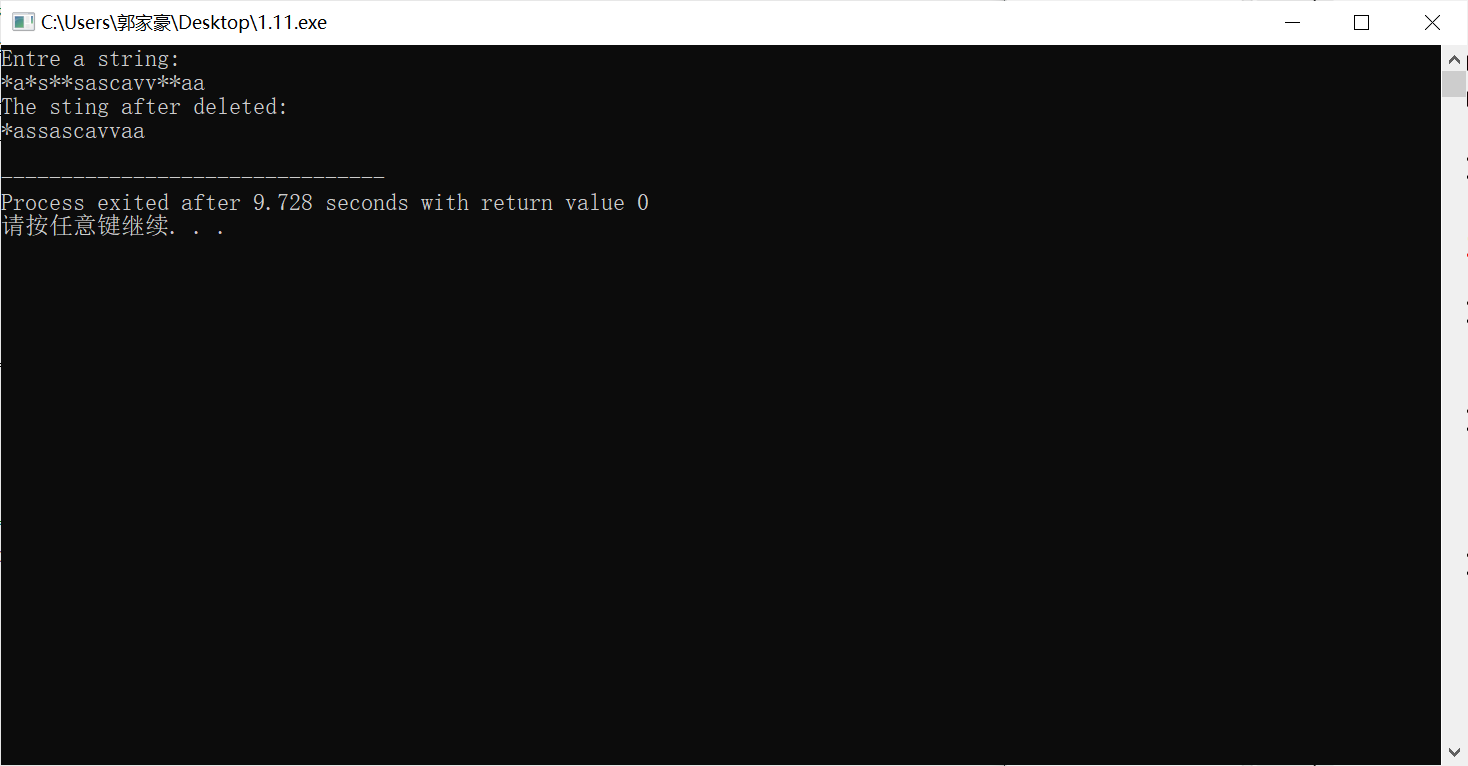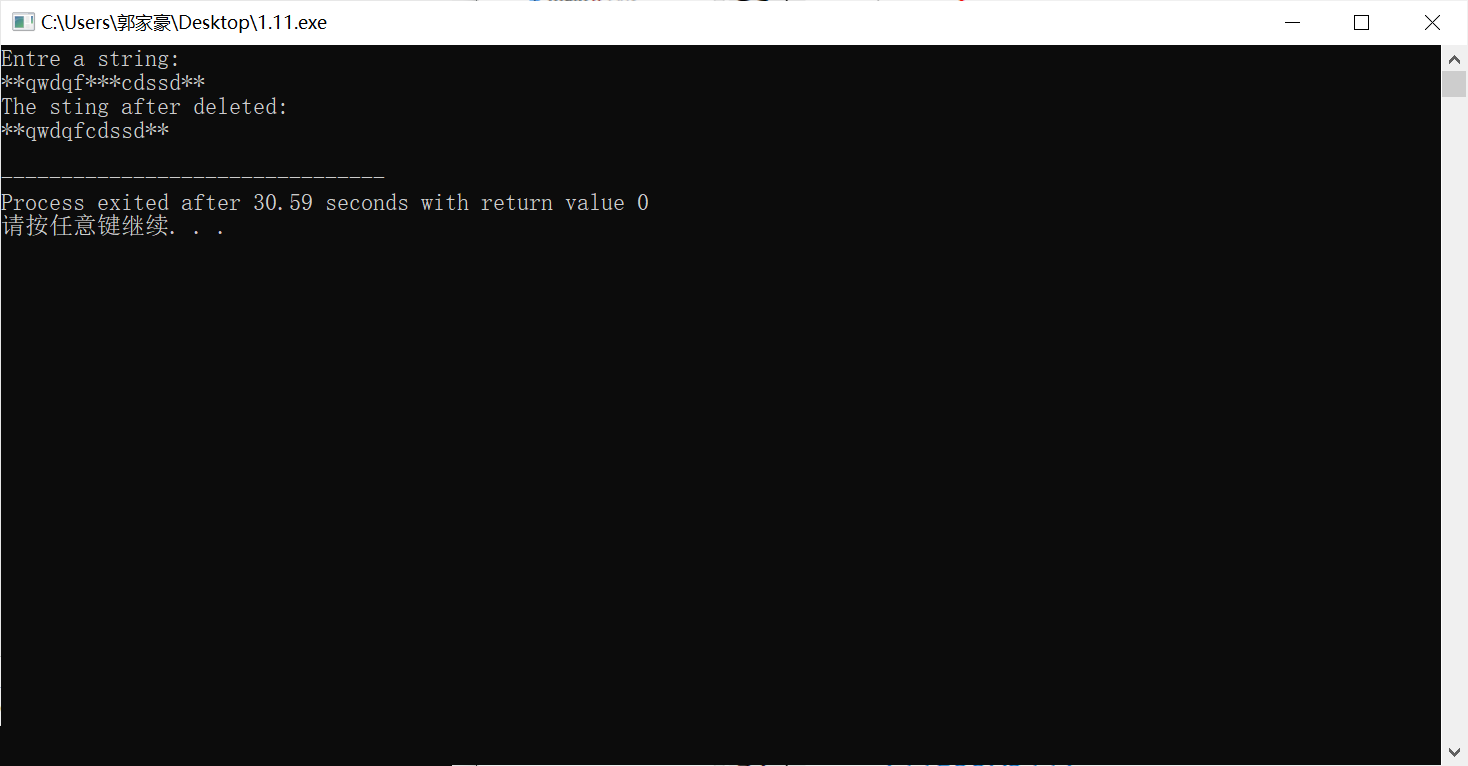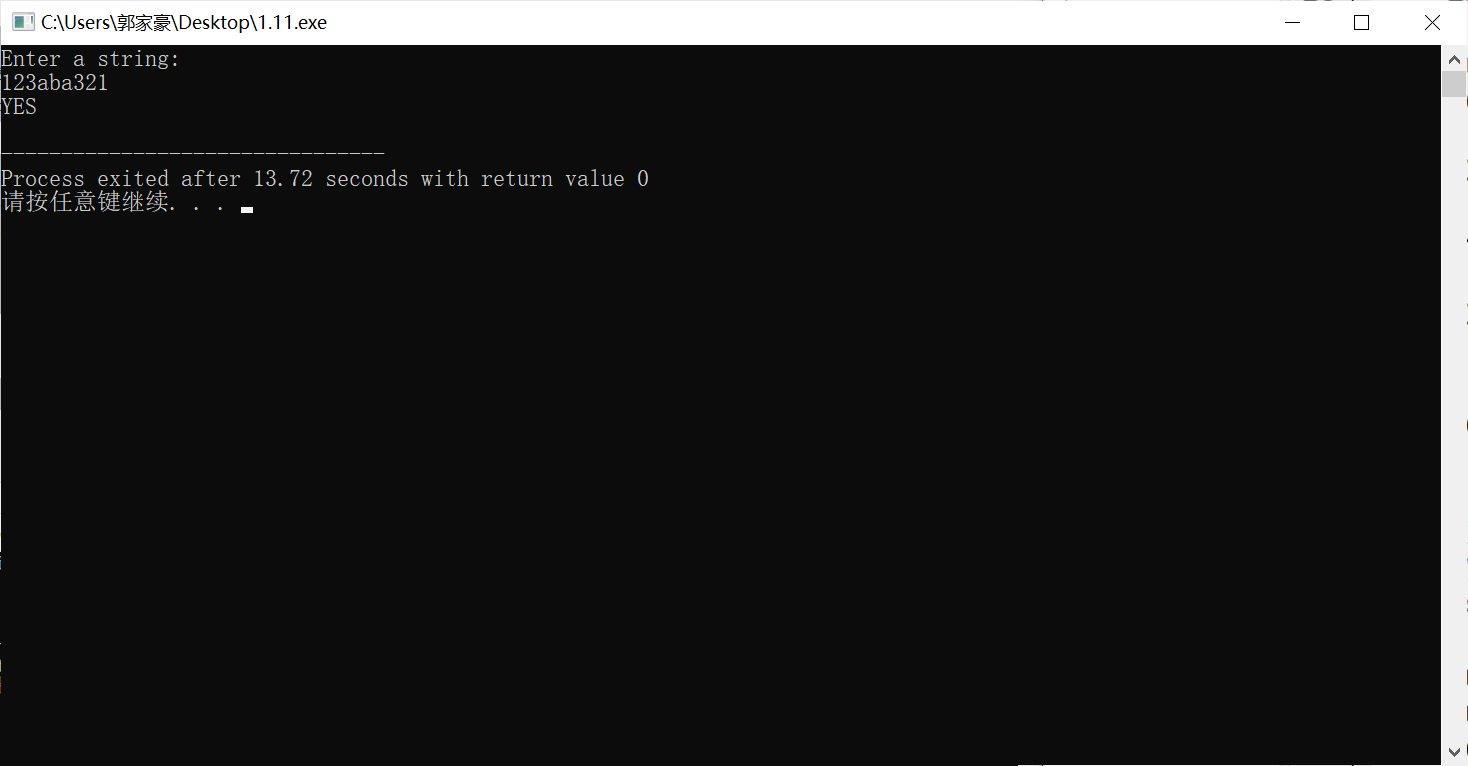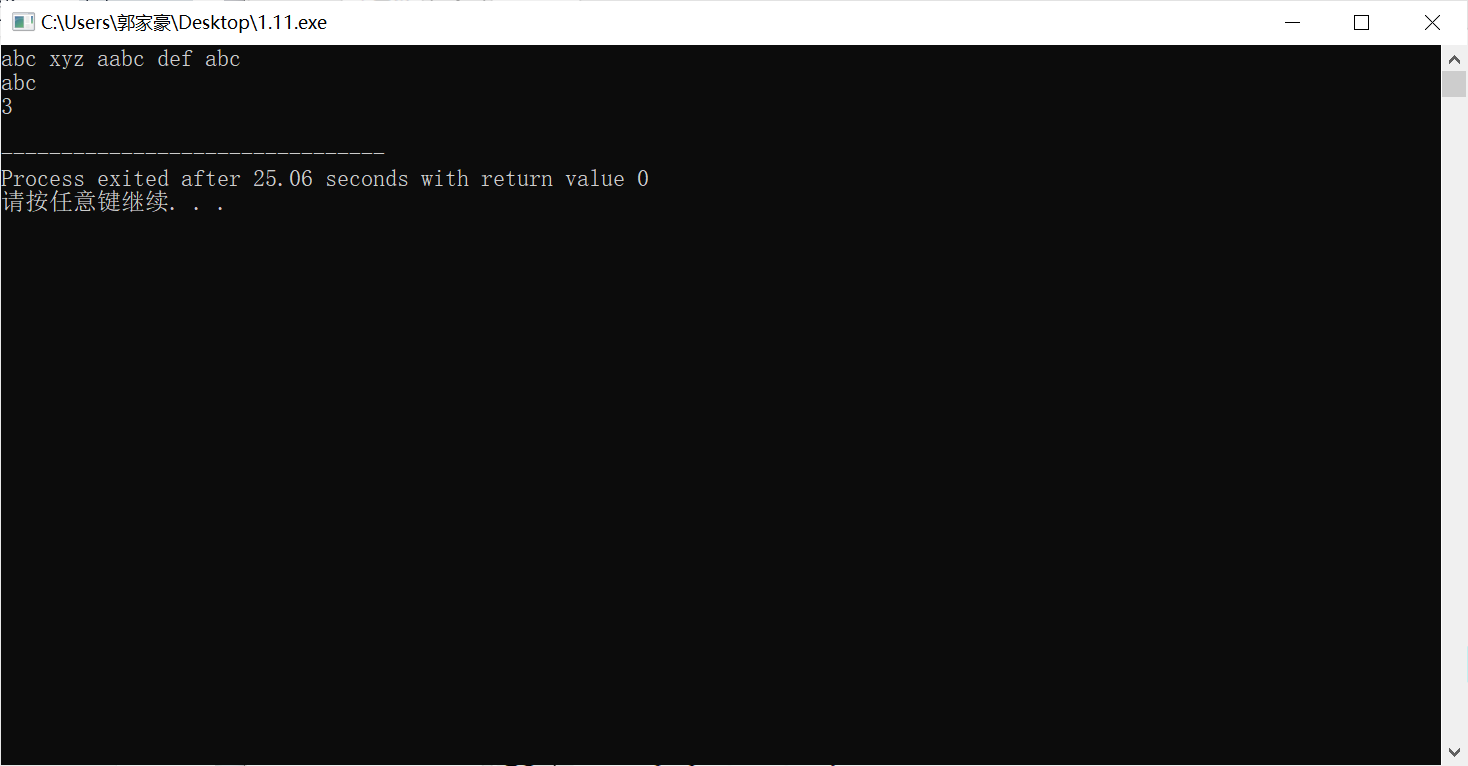#include <stdio.h>
#define N 5
int binarySearch(int *x, int n, int item);
int main()
{
int a[N] = {2, 7, 19, 45, 66};
int i, index, key;
printf("数组a中的数据:\n");
for (i = 0; i < N; i++)
printf("%d ", a[i]);
printf("\n");
printf("输入待查找的数据项: ");
scanf("%d", &key);
index=binarySearch(&a[0],5,key);
if (index >= 0)
printf("%d在数组中,下标为%d\n", key, index);
else
printf("%d不在数组中\n", key);
return 0;
}
int binarySearch(int *x, int n, int item)
{
int low, high, mid;
low = 0;
high = n - 1;
while (low <= high)
{
mid = (low + high) / 2;
if (item == *(x + mid))
return mid;
else if (item < *(x + mid))
high-=mid;
else
low+=mid;
}
return -1;
}
![]()
![]()
#include <stdio.h>
#include <stdlib.h>
#include <string.h>
void fun(char *a)
{
int i=0;
char *t = a, *f = a;
char *q = a;
while (*t)
t++;
t--;
while (*t == '*')
t--;
while (*f == '*')
f++;
while (q < f)
{
a[i] = *q;
q++;
i++;
}
while (q < t)
{
if (*q != '*')
{
a[i] = *q;
i++;
}
q++;
}
while (*q)
{
a[i] = *q;
i++;
q++;
}
a[i] = '\0';
}
int main()
{
char s[81];
printf("Entre a string:\n");
gets(s);
fun(&s[0]);
printf("The sting after deleted:\n");
puts(s);
return 0;
}
![]()
#include <stdio.h>
#include <stdlib.h>
#include <string.h>
void fun(char *a)
{
/**ERROR******/
int i=0;
char *t = a, *f = a;
char *q = a;
while (*t)
t++;
t--;
while (*t == '*')
t--;
while (*f == '*')
f++;
/***ERROR***/
while (q < f)
{
a[i] = *q;
q++;
i++;
}
while (q < t)
{
/***ERROR**/
if (*q != '*')
{
a[i] = *q;
i++;
}
q++;
}
while (*q)
{
a[i] = *q;
i++;
q++;
}
/**ERROR**/
a[i] = '\0';
}
int main()
{
char s[81];
printf("Entre a string:\n");
gets(s);
/**ERROR**/
fun(&s[0]);
printf("The sting after deleted:\n");
puts(s);
return 0;
}
![]()
#include <stdio.h>
#include <string.h>
#define N 80
int isPalindrome(char *s);
int main()
{
char str[N];
int flag;
printf("Enter a string:\n");
gets(str);
flag = isPalindrome(str);
if (flag)
printf("YES\n");
else
printf("No\n");
return 0;
}
int isPalindrome(char *s)
{
int i;
int b=strlen(s);
for(i=0;i<=b;i++){
if(s[i]!=s[b-1])
return 0;
b--;}
return 1;
}
![]()
#include <stdio.h>
#define N 80
int count(char *str, char *substr); // 函数声明
int main()
{
char str[N], substr[N];
int n;
gets(str); // 输入母串
gets(substr); // 输入子串
n = count(str, substr); // 函数调用
printf("%d\n", n);
return 0;
}
int count(char *str, char *substr)
{
int i, j, k;
int num = 0;
for(i=0;str[i]!='\0'; ++i)
for(j=i, k=0; substr[k] == str[j]; k++, j++)
if(substr[k+1] == '\0')
{
num++;
break;
}
return(num);
}
![]()









 浙公网安备 33010602011771号
浙公网安备 33010602011771号